Hammer Time Rewind: Edison Medicine
I revisited my past recently. A friend of mine who has been in the car business for longer than I’ve been alive called me right out of the blue. It had been well over two recessions since our last talk and yes, there was an awful lot of catching up to do. So the banter lasted about three hours and all we talked about was… how things don’t work in the car business.
The list is longer than a modern day health care bill and the prescription is pain (and debt) incarnate. That is unless you decide to take the easy way out. In which case it’s downright fatal. There are thousands of do’s and don’ts in this business. Today I’ll share the Top Five ways many rookies end up scorching the thin skin under their Hawaiian shirts.
1) Start Big
There was once this fellow I knew by the name of Crowe. Great guy for someone in the used car business…well…. okay he was a jerk. Crowe was just one of the thousands of people who come with big ideas about how the car business should work and little real experience. So what does he do? He gets a bank to loan him 400k for a brand new dealership (this was back in 2006). He buys 60+ cars through a floorplan company that finances all his vehicles. He advertises through every marketing source that knocks on his door. Pretty soon the high sixes in debt have hit the $1 million mark without a single sold car yet.
Grand opening comes with hot dogs, balloons, rides for the kids, and enough salesmen to serve the entire Trump family. He sells two cars. For the rest of the month he sells three. The finance company starts to want some of their money. He prays, he stresses, he panics… and he’s completely bankrupt in three months. But don’t worry though. The bank that financed him got bailed out.
Big Point: Most of the veterans in this business start in either one of two places. Either they get their experience as an employee, or they start slowly with one vehicle at a time. When they become successful, it’s because they were wise enough not to make their ‘big bets’ with little experience. Start small and build up.
2) Floorplan
Floorplan companies are more or less professional handicappers. They offer you the opportunity to buy vehicles for a given interest rate and certain terms. If you are good at churning cars they can work extremely well. But a few down times or bad loans, and your debt can quickly become bigger than a home mortgage.
The big issue with these companies is that when it comes to the rookie dealer, they are going to offer the equivalent of a sucker’s bet. A small fee up front leads to major costs once the vehicle may hit the 30, 60 or 90 day mark at the lot (and beyond). It usually takes several months to a year for any dealership to gain presence. Without the ‘presence’ there is absolutely no chance of clearing a floorplan’s costs.
Big Point: Always work with your own money starting out. Money is cheap to acquire in this business (if your credit is good), but it will usually be very expensive in due time if it isn’t yours.
3) The Internet Will Set You Free
The biggest fallacy in this business is that Internet alone will get you ahead. It can happen. But not like it used to.
Back in 2005 an auto advertisement on Craigslist would usually stay on the 1st page for seven to eight hours. You always got calls and most of the people were fairly well educated. These days it’s five to fifteen minutes and the majority are any combination of auto illiterate, desperate, or predatory.
Autotrader also used to be a great place. But with so many PT Cruisers, Malibus, and Tauruses out there it’s very hard to differentiate your own. You also have to take into account that most dealerships are savvy with their internet operations and have been building their own talents for several years. To make the internet work, you have to offer an ‘exceptional’ edge of some sort. Price alone usually doesn’t cut it because the real cheapskates are the rebuilders who use illegal labor and wash their titles.
Big Point: Most of the successful independent dealers offer something of value beyond price to their customers. Most of the time it’s financing. Sometimes it’s a warranty. Sometimes it’s the opportunity to buy from a place that specializes in those vehicles. Selling cars is 90% perception with about 10% nuance for the buyer’s unique wants.
Everyone in this business who ultimately succeeds finds a customer niche or a marketing strategy that they will use through multiple mediums. TV, Radio (remember them), drive-by’s, event sponsorships, mass mailings (these are in decline), and perhaps even a dancing turkey in front of their store du jour. All joking aside, you need to refine your message and you better have strong word of mouth. Take care of your people.
4) Buy With Your Eyes
If you don’t know much about purchasing cars you have three options. Buy cars from a wholesaler. Hire an employee to buy them. Or buy them yourself. Number one is a little expensive. Number two is real expensive. Number three is the most expensive… but only if you chose to ignore the way things work at the various wholesale channels. I’ll just cover auto auctions for now since that’s the one most folks are familiar with.
At the dealer auctions nearly everything is nice and shiny. The car that’s been there 18 months? It just got a spray down and a quick wipe before going through the block. Every vehicle there has arrived for a reason. Do you know what it is? People who buy with their eyes are a lot like consumers. Most rarely look past the proverbial cover and they end up paying for it down the road.
Big Point: If you haven’t opened the hood, and the doors, and the trunk, and took a look at everything in between then don’t bid on it. ‘Beauty’ in this business is like an old Kia. It’s a neurotic demon bitch with flood damage, rust, and $3000+ worth of mechanical issues. Start slowly and learn from others… but don’t copy them. That nice friendly guy who doesn’t look at what he’s buying either has an army of mechanics at his disposal or is laundering money. Sometimes both.
5) Finance
You buy a car for $2000 and you finance for $4000. Wonderful! You get the first $500 payment. Even better! The first payment is late, then the second is partial. By the third payment, the phone number’s been disconnected. Then you realize that your $2000 profit is a negative $1500 with a repo fee… if you’re lucky.
I avoided financing during my first three years for ‘philosophical reasons’. I absolutely hated the idea of financing depreciating assets and ‘enslaving’ folks. So I didn’t. I was a cash dealer. In those days, I generally found cash customers to be far easier to work with. But since then this country got whored out and I had to adjust my cottage sized enterprise to the Titanic sized debts of my fellow citizens.
Big Point: Financing can work. But you have to work very hard at it and make extra sure that you’re financing the right people. Do everything you can to help the good folks. But be a nag. Be persistent, and know when to cut your losses.
More by Steven Lang
Latest Car Reviews
Read moreLatest Product Reviews
Read moreRecent Comments
- Redapple2 Used to watch F 1 a great deal. Now? F1 Random thoughts:1 Silly rules bug me. Must use 2 types of tire. Cant refuel. Drag reduction can only be used in certain areas of the track and only if you are so close to the car in front.2 Passing is rare. Pole sitter wins a high % of the time.3 A new team can only start in F1 if they get the blessing of the overlords. Evil gm Vampire was barred. How about this. Anybody with a car that meets the construction rules can try. If your speed qualifies and you pay the entry fee. You re in. So is anybody else. 4 I tune in for Martin Brundle's grid walk. In my life, it s must see tv. But he is often bumped or cancelled. Grid walk takes place 1 out of 3 or 4 races.5 So, because of this utter bull sheet and other points, I ve migrated to IMSA and MotoGP. I might catch a summary on the youtube.
- Redapple2 I retract my comments and apologize.
- Flashindapan I always thought these look nice. I was working at a Land Rover dealership at the time the LR3 came out and we were all impressed how much better it was then the Discovery in just about every measurable way.
- Bd2 If I were going to spend $ on a ticking time bomb, it wouldn't be for an LR4 (the least interesting of Land Rovers).
- Spectator Wild to me the US sent like $100B overseas for other peoples wars while we clammer over .1% of that money being used to promote EVs in our country.



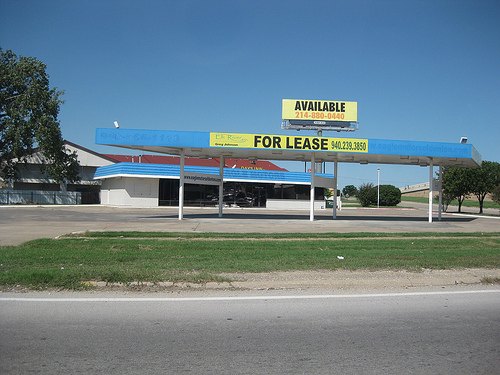















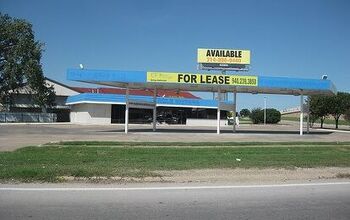
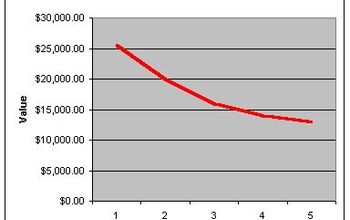
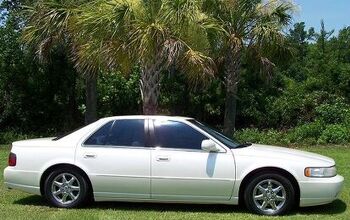

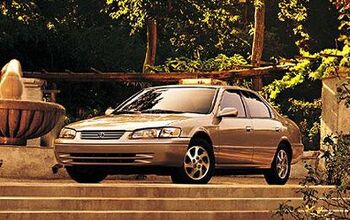










Comments
Join the conversation
Buy with your eyes? Same as emotional attachment. That has gotten me hosed more than once - not that the cars were bad, but that I fell in love with them and overpaid. My 1961 Chevy? Yup. My 1964 Chevy? Yup - but I didn't care, as that was the most amazing car I have ever owned. Most other cars? Yes. The best deal I got? My Impala because I didn't have to deal, just accept the supplier discount plus the rebates and viola! Good deal. Our MX5? Pretty good deal.
I work at a 200-people+ university lab, and we get our fair traffic of foreign visitors and post-docs. For these folks' automotive needs, I'm the resident helper-outer, something I've done for 15 years or so. I like the article. I have to explain a lot how if you have $6k to spend, you can find a nice car if you know what to look for... but if you're trying to get wheels for $3 or under, it's going to be a bumpy ride. What a lot of educated Europeans don't understand is how close to the edge most Americans live in a financial sense. I've done the math on how many cars I'd have to sell every year to duplicate my middle-class-but-not-lavish salary... it's an exercise that really puts into perspective how hard it is to make a living in this business. No easier than other professions where knowledge and hard work counts. Two more points, not my inventions: - It's easy to make a small fortune with a used-car operation. Just start with a big one. - The best way to make it in automotive sales if if you have a Ph.D. = "Papa Has a Dealership." Cheers -Mathias